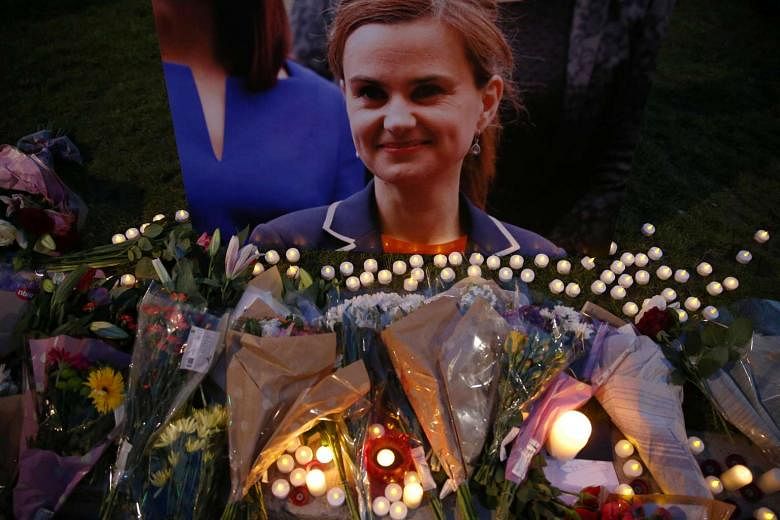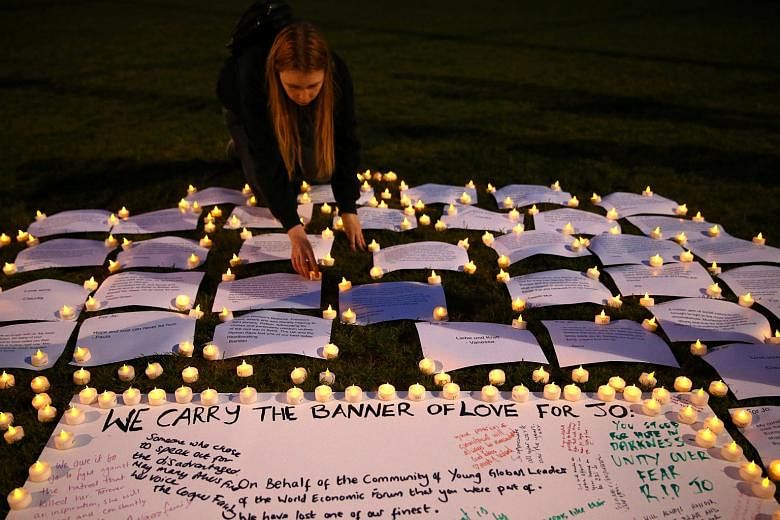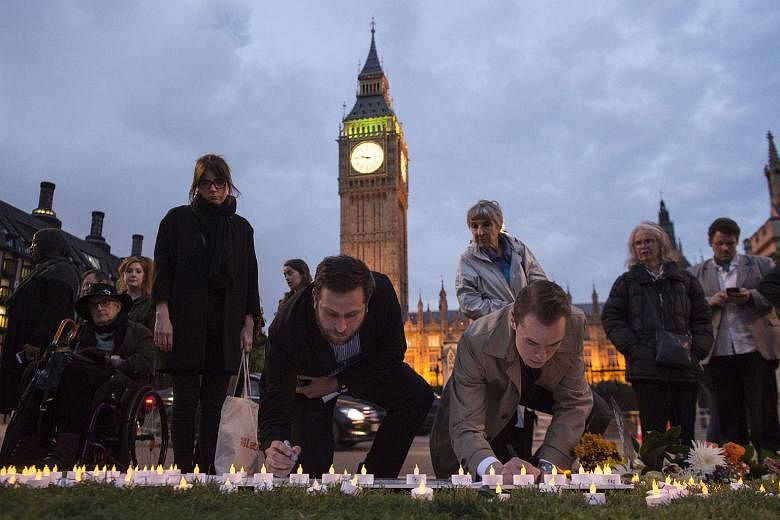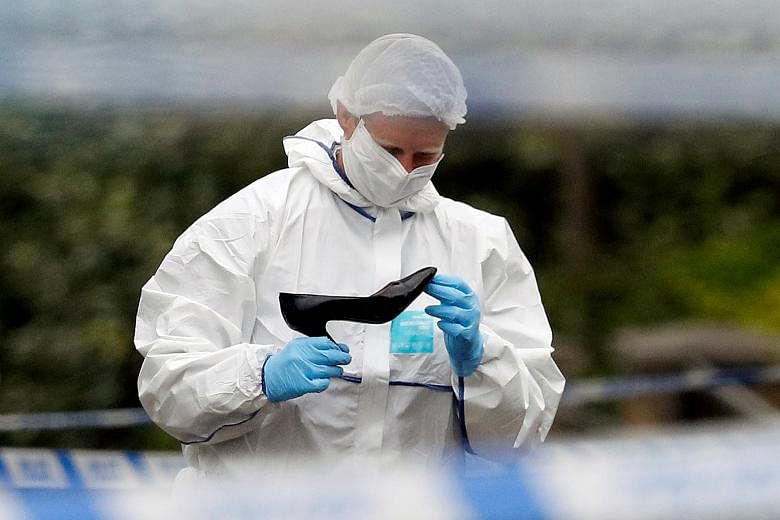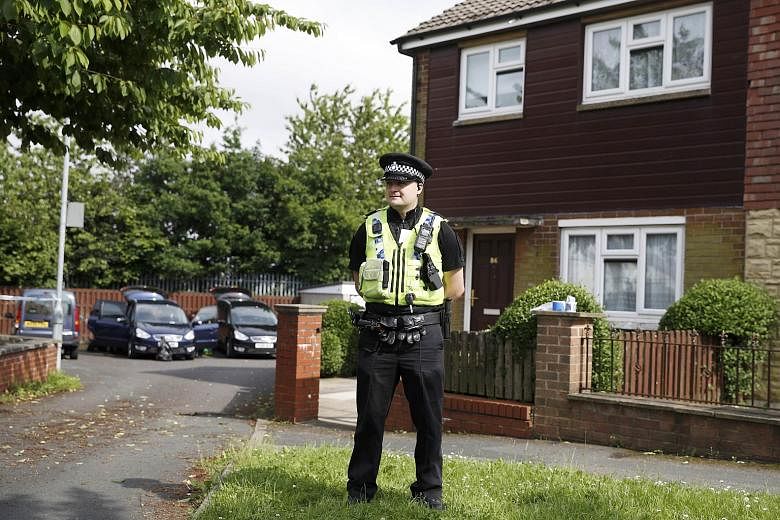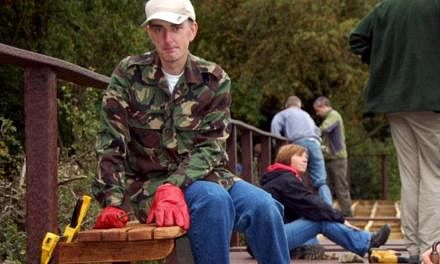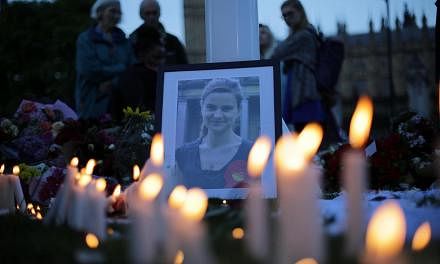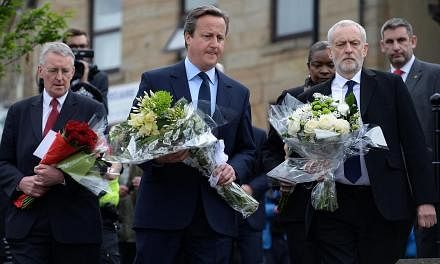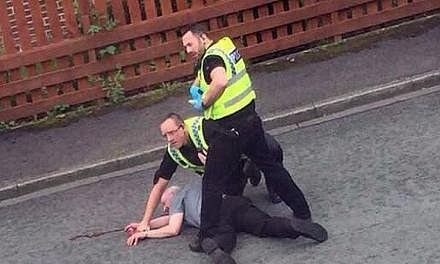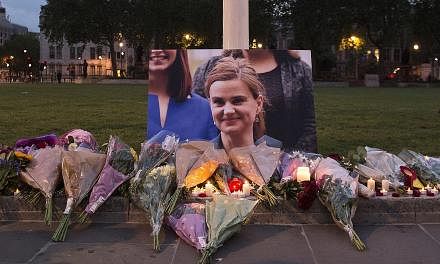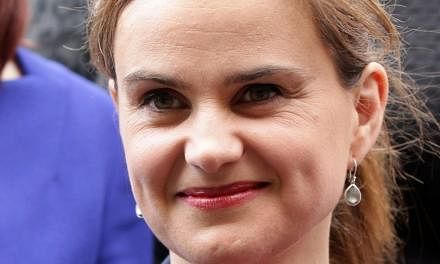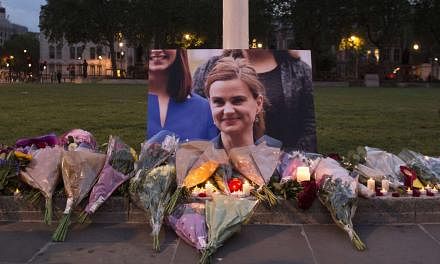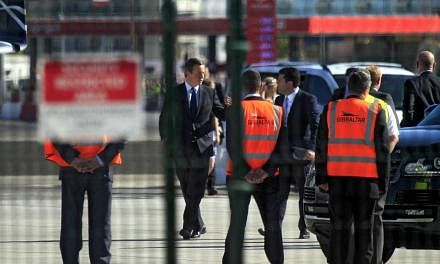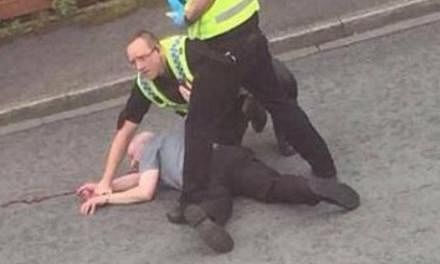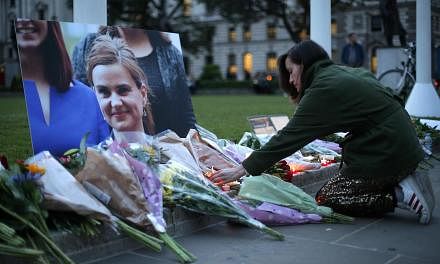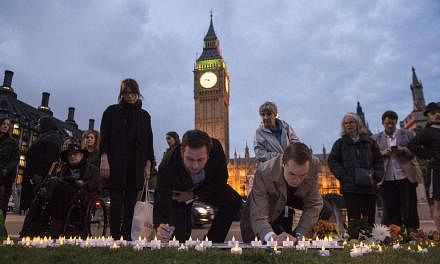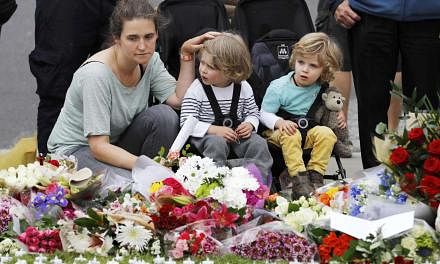BIRSTALL, England (REUTERS)- Britain mourned lawmaker Jo Cox on Friday (June 17) after a man wielding a gun and knife killed the 41-year-old in an attack that has thrown next week's referendum on European Union membership into limbo.
Cox, a supporter of Britain staying in the EU, was shot and stabbed on Thursday by a man who witnesses said shouted "Britain first" in her own electoral district near Leeds in the county of West Yorkshire in northern England.
A 52-year-old man named by media as Thomas Mair, and described by family members as having a history of mental illness, was arrested and police said a firearm was recovered.
Britain First, a far-right nationalist group, denied any links with Mair but a US civil rights group said he had been associated with a neo-Nazi organisation.
In Birstall, a usually quiet town of a few thousand people, shocked and weeping mourners laid flowers at a monument near the scene of the attack. One message left beside the flowers read:"Fascists feed on fear."
The killing prompted campaigning to be suspended in the June 23 EU referendum, the tone of which has become ugly and included bitter personal recriminations as well as furious debate of issues such as immigration and the economy.
Though the killer's motives were not immediately clear, some financial market analysts suggested sympathy for Cox could boost the Remain campaign which opinion polls indicate had fallen behind Leave. It was not clear when campaigning would resume.
Police said they were not in a position to discuss the motive of the attack and a full investigation was under way. There have been no charges in connection with the killing.
"Jo believed in a better world and she fought for it every day of her life with an energy and a zest for life that would exhaust most people," Cox's husband, Brendan, said.
"She would have wanted two things above all else to happen now, one that our precious children are bathed in love and two, that we all unite to fight against the hatred that killed her."
The deputy leader of Britain First, Jayda Fransen, distanced her group - which describes itself as "a patriotic political party and street defence organisation" - from the attack and described it as "absolutely disgusting".
The Southern Poverty Law Center (SPLC), a civil rights group based in Alabama, said on its website that it had obtained records showing a Thomas Mair had links with the neo-Nazi organisation National Alliance (NA) dating back to 1999.
The SPLC posted images showing what it said were purchase orders for books bought by Mair, whose address is given as Batley in northern England, from the NA's publishing arm National Vanguard Books in May of that year. The orders included a manual on how to build a pistol, it said.
Reuters was unable to verify the report independently.
"YOU CAN'T KILL DEMOCRACY"
Britain's Union flag was flying at half-mast over the Houses of Parliament, Queen Elizabeth's London residence Buckingham Palace and Downing Street, where Prime Minister David Cameron has his official residence.
The queen was due to write a private letter of condolence to Cox's husband and members of the public and lawmakers, many weeping, laid flowers outside the Houses of Parliament.
Beside a picture of Cox smiling, dozens of white candles lay beside bunches of flowers and a message board, on which people had written their condolences. "You can't kill democracy," read one message on Parliament Square. Another said: "We will unite against hatred."
Others put flowers on the houseboat on the River Thames where Cox had lived with her husband and two young children aged three and five.
Shares, oil and bond yields rose after campaigning in the EU referendum was suspended, reversing earlier losses this week which followed a swing in opinion polls towards the Leave camp.
British politicians paid tribute to Cox and expressed shock at the killing, as did leaders across Europe and the world.
Cameron called for tolerance in public debate on Friday near the spot where MP Jo Cox was gunned down, as it was announced that parliament would be recalled Monday to pay tribute.
"Where we see hatred, where we see division, where we see intolerance, we must drive it out," Cameron said in the northern English village of Birstall at a joint event with opposition Labour leader Jeremy Corbyn, who said his request for a recall of parliament had been accepted.
Cameron earlier said the killing of Cox, who had worked on US President Barack Obama's 2008 election campaign, was a tragedy. "We have lost a great star," said Cameron, who called the referendum. "She was a great campaigning MP with huge compassion, with a big heart. It is dreadful, dreadful news."
Hillary Clinton said she was horrified. German Chancellor Angela Merkel called the attack "terrible" but added that she didn't want to link it to the EU referendum.
The implied probability of a vote to remain rose to 67 per cent, up from 65 per cent on Thursday, according to Betfair odds.
LAWMAKERS' SECURITY
Cox had arrived in Birstall for a "surgery" in a library with members of the public, a one-to-one meeting much like when a patient consults a doctor.
In Westminster, where lawmakers do much of their work in parliament, armed police patrol the entrances, corridors and halls but there is often no security in their home electoral districts, or constituencies.
Tempers can flare during surgeries and parliamentarians are often subjected to abuse on social media. Cox had complained to police after receiving "malicious communications" and a man was arrested and later released with a caution in connection with the investigation in March.
A spokeswoman for the House of Commons said it was reissuing security advice to lawmakers and advising them to contact their local police if they have any concerns.
Mair's brother said Mair had not expressed strong political views, the Guardian newspaper reported. "He has a history of mental illness but he has had help,"the Guardian quoted his brother, Scott Mair, as saying. "My brother is not violent and is not all that political. I don't even know who he votes for."
Neighbours described a man who had lived in the same house for at least 40 years and helped locals weed their flowerbeds and inquired after their pets. "I'm totally devastated - I didn't want to believe it. He's been very helpful to me. Anything I asked him to do he did very willingly and sometimes without my needing to ask," said next-door neighbour Diana Peters, 65. "I saw him the day before. I was taking my cats to the vet and he came and asked me how they were," she told Reuters.
Gun ownership is highly restricted in Britain, and attacks of any nature on public figures are rare. The last British lawmaker to have been killed in an attack was Ian Gow, who died after a bomb planted by the Irish Republican Army (IRA) exploded under his car at his home in southern England in 1990.
